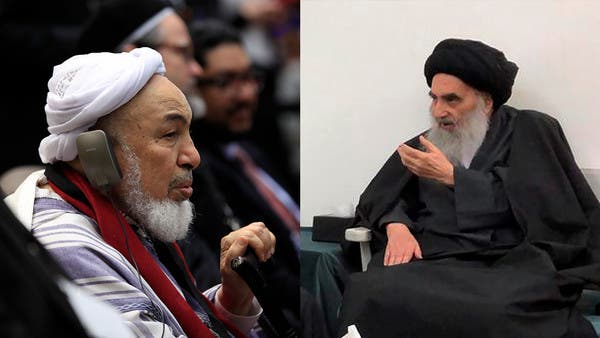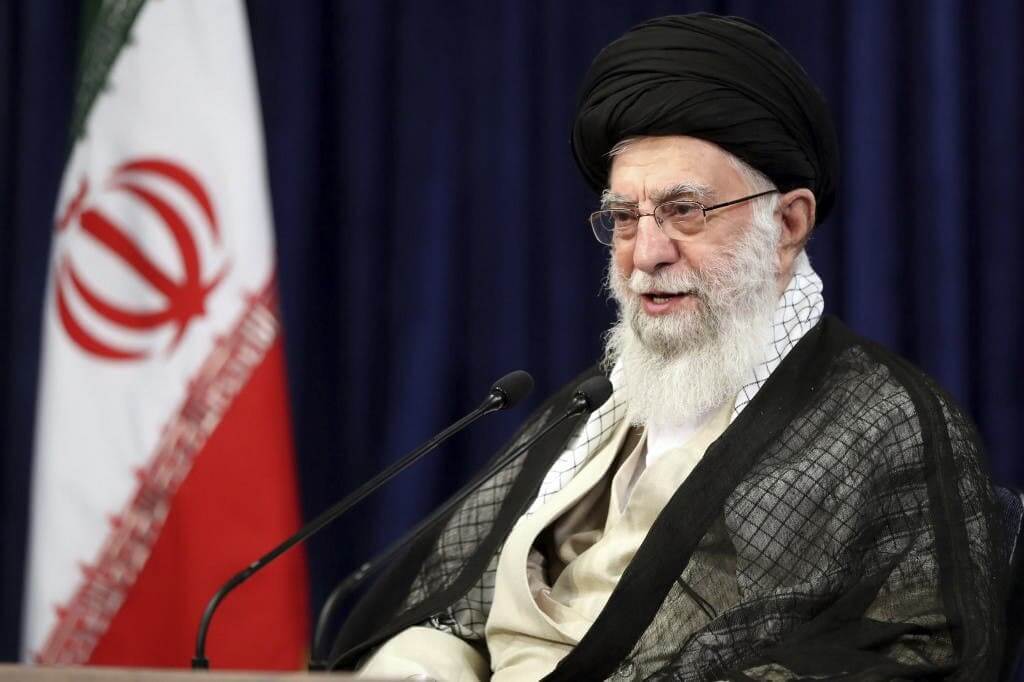Sistani and Bin Bayyah: The collaboration of the sane against extremism
The collaboration of the sane and wise is no longer considered a luxury. It is a pressing need to maintain security and stability in a region rife with wars and conflicts, ravaged by inflammatory, violent and sectarian rhetoric. Its people have been held hostage by extremists who undermine their dreams for too long. Cooperation is the lifeline to save us from drowning in these seas of blood and hatred.

n an earlier article entitled “What if Sistani and Bin Bayyah joined forces?” I have previously discussed the similarities between the two religious authorities, Sayyid Ali al-Sistani and Shaykh Bin Bayyah, released on October 23 by “Al-Nahar Al-Arabi”.
This is especially true because the mentalities of both men are based on the implementation of social, cultural, educational and service agendas that adhere to the law and respect the sovereignty of the states in which they operate, without involvement in political conflicts or the incitement of Muslims to retreat into separate societies.
A Reunion of Moderation
The “Forum for Promoting Peace in Muslim Societies“, headed by Sheikh Abdallah Bin Bayyah, was hosted by the UAE capital Abu Dhabi in December 2019 and was attended by several dignitaries from different sects, religions, nationalities, and races.
Among the attendees was Sayyid Ali al-Khoei, grandson of the late supreme authority of Shia Muslim Ayatollah Abul-Qasim Al-Khoei, as was the Iraqi academic and critic Dr. Hassan Nazim, who later became the Minister of Culture in Mustafa al-Kazemi’s Government. The two men signed the agreement for the New ‘League of the Righteous’ (Hilf al-Fudul) which was launched at the Forum.

The aim of the agreement is to create common humanitarian foundations regulating disputes, respecting all religions and individual and collective rights, and enshrining the principles of ‘inclusive citizenship’ and “the rule of law.”
Sheikh Abdallah Mahfoudh Bin Bayyah, in his turn, walked around actively, saluting the participants, catching up with friends, and exchanging futuristic ideas.
The relationship of respect that ties Mahfoudh and both al-Khoei and Nazim, regarded to be close to the Sistani authority, and their soft power among intellectuals, writers and religious scholars, as well as study centers, houses of expertise and Hawzas, and their firm belief in “moderation” and “rationality”…are all valuable building blocks for a new active group of modern religious and civic leaders, who are ranked second and third after Sistani and Shaykh Abdullah Bin Bayyah, leaderships that take initiatives, and push for more permanent partnerships.
The close circles of Sistani and Bin Bayyah
The involvement of the institution of authority in a cooperative partnership with other spiritual institutions, whether Muslim, Christian, or Jewish, as with other human faiths, to alleviate religious hostilities and hate based on religion, such as those advocated by extremists.
The Authority shall cooperate with civil society organisations and community-based and charity organisations, with whom it shall cooperate in providing all forms of assistance to the different sectors of the population.
The institution of authority does not engage in direct political work or compete with or overly favour one government over the other, but rather seeks to forge relationships that are natural, stable, equitable, mutually respectful, autonomous and mutually reinforcing.
Intensifying joint work between the authorities of Al-Sistani and Bin Bayyah through established institutions, such as the Forum for the Promotion of Peace in Muslim Societies, the Al-Muwatta Center, the Aal al-Bayt Institute, the Imam Jafar Sadiq Center and other institutions.
Training of civil and spiritual cadres, who will become the new “leaders”, who can openly work and debate, breaking the chains of customs and formalities that might limit the activities ofSistani and Bin Bayyah. It is of special significance to accomplish this phase at this point of time, as it can give acceptance and presence among believers to these leaders.
Given the level of reverence they enjoy among political leaders of many Arab, Islamic and European countries, especially in the Arabian Gulf, much can be accomplished through the Sistani and Bin Bayyah authorities. These leaders should inspire their supporters to believe in respect for all human beings, to renounce all forms of violence, and to create a better future for themselves.
The Civil State
Those close to Ayatollah al-Sistani’s office tell me that Sistani’s opinion has been that religious scholars should not take office since the collapse of former Iraqi President Saddam Hussein’s regime in 2003, and that there should be a civil order that honours Islam, refusing to recreate the experience of the Islamic Republic of Iran, believing that the Wilayat al-Faqih (Guardianship of the Jurist) governance model is not suitable in Iraq, a desired homeland for all its people of different races and religions.

A quite similar, if not identical, view is held by Sheikh Bin Bayyah. He insists that religious scholars should not contend, which is considered a “mundane” matter, with governments over the management of state affairs. This mission is being carried out by legislative, executive, judicial and regulatory institutions.
A luxury is no longer considered to be the collaboration of the sane and wise. In an area full of wars and conflicts, ravaged by provocative, aggressive and sectarian rhetoric, there is a pressing need to preserve security and stability. Extremists who have been destroying their hopes for too long have taken their people hostage. In these oceans of blood and hatred, cooperation is the lifeline to save us from drowning.
By Hassan Al Mustafa




